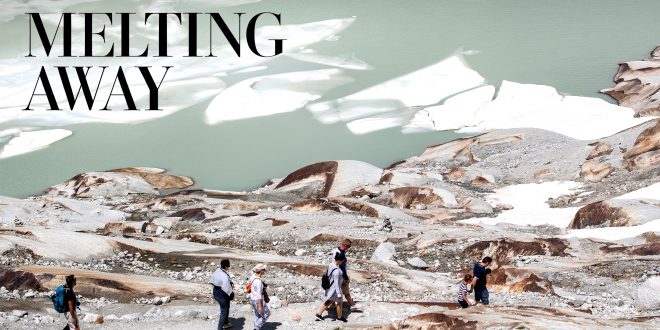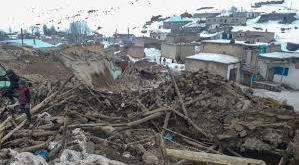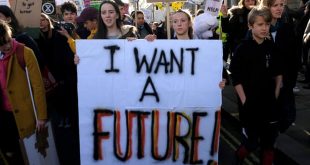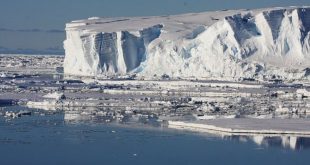We’re still coming to grips with how hot the recent heat wave that scorched through Europe actually was. On Monday, officials in Britain confirmed the country experienced its hottest day on record last Thursday. July 25 also broke national records in the Netherlands, Belgium and Germany. In Paris, the temperature reached 108.7 degrees Fahrenheit (42.6 Celsius), smashing the French capital’s 72-year-old record by a staggering four degrees. Over the weekend, records fell across Scandinavia, with the Norwegian Meteorological Institute even reporting that 20 places in southern Norway experienced “tropical nights.”
What happened? An intense area of high pressure, known as a “heat dome,” settled over Western Europe. As The Washington Post’s deputy weather editor Andrew Freedman explained, the stunning margins by which many of the previous record highs were eclipsed over the last week point to an inescapable reality: man-made climate change.
Climate scientists say it’s unlikely that this event would have occurred without the influence of human-caused global warming, Freedman wrote in a memo to Today’s Worldview. “The weather system responsible for the heat wave is now parked on top of Greenland, where it is expected to significantly speed up the pace and extent of ice melt for the next week. It could also help to drive Arctic sea ice to a record low by September, beating a record set in 2012.”
Epic heat waves racked South Asia and the Middle East earlier this summer; glaciers in the Himalayas are now melting at double the rate since the turn of the century. Last month, the World Meteorological Organization projected that the period between the beginning of 2015 and the end of this year will mark the Earth’s five warmest years on record.
To that end, advocates point to a series of crucial international meetings: A major U.N. conference on climate action in New York this September and the COP25 climate change conference in Chile this December, which will build on previous rounds of international diplomacy, including the landmark 2016 Paris climate agreement. U.N. Secretary-General António Guterres has dubbed climate change “the battle of our lives” and has asked leaders attending the U.N. summit in September to come “ready to announce the plans that they will set next year to reduce greenhouse gas emissions for 2030 and to achieve net zero emissions by 2050.”
But beyond the summitry, deep political battles are still being fought. European politicians on the right have mocked activists as “apocalyptic gurus.” Under Brazil’s right-wing President Jair Bolsonaro, the deforestation of the Amazon basin is accelerating. And, of course, President Trump remains the world’s climate denier-in-chief — he pulled out of the Paris accords, while his administration is tacitly silencing climate scientists and cutting back environmental regulations.
Washington post
 Lebanese Ministry of Information
Lebanese Ministry of Information



